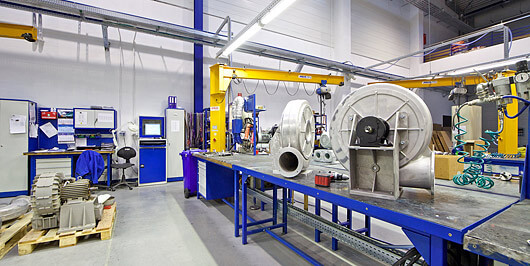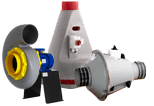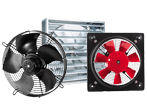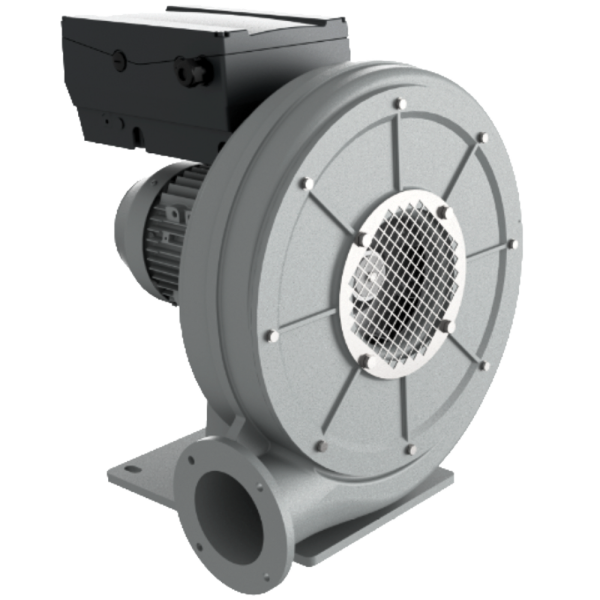Fan Selection Software
Operating point
Select fan type

HPB-F INT
Centrifugal fan
High-pressure centrifugal fan with direct drive with an integrated frequency converter. The fan is designed for the transport systems of non-aggressive and non-explosive gases without pollution.
Now available from
Ventur & Venture Industries
Ventur & Venture Industries
Can be painted in a color
other than standard
other than standard

Application
Fan designed for transport systems of non-aggressive and non-explosive gases without contamination. Typical applications are:
- pneumatic transport,
- blowing in drying systems (e.g. graphic machines and plastics processing),
- air blowing systems in combustion/thermal treatment systems (e.g. melting furnaces).
Construction
- high-pressure direct-drive radial fan,
- riveted rotor made of aluminium sheet, with B-type blades, dynamically balanced according to ISO 1940-1,
- cast aluminum housing,
- base welded from steel sheet,
- fan painted in grey RAL7042 (motor in manufacturer's colour),
- maximum temperature of the pumped medium 800C,
- motor ambient temperature from -200C to 400C,
- standard figure LG270.
Electric motor
- asynchronous, three-phase, 230/400 V, 50Hz (Δ connection for 87Hz - 87Hz technique),
- IP55 protection class,
- insulation class F,
- thermal sensors in the winding (PTC).
Frequency converter
- integrated with electric motor, factory configuration in 87Hz technique,
- without panel standard version,
- built-in MMI control pane.
Special executions
- any LG/RD figure,
- painting in a color other than the standard one,
- rotor made of galvanized steel sheet,
- rotor made of stainless steel sheet 1.4301,
- rotor made of stainless steel sheet 1.4301,
- motor with a different IP protection level,
- motor equipped with sensors or additional cooling.
- motor ambient temperature below or above -200C and 400C.
Technical assistance
- User manual 3,00 MB
- Declaration of conformity (CE) 407,10 KB
- Declaration of conformity (CE) 413,58 KB
- Declaration of conformity (CE) 400,62 KB
- Declaration of conformity (CE) 393,91 KB
- Declaration of conformity (CE) 385,35 KB
- Electrical connection diagram 9,48 KB
- Electrical connection diagram 41,24 KB

Work characteristics
Additional equipment











